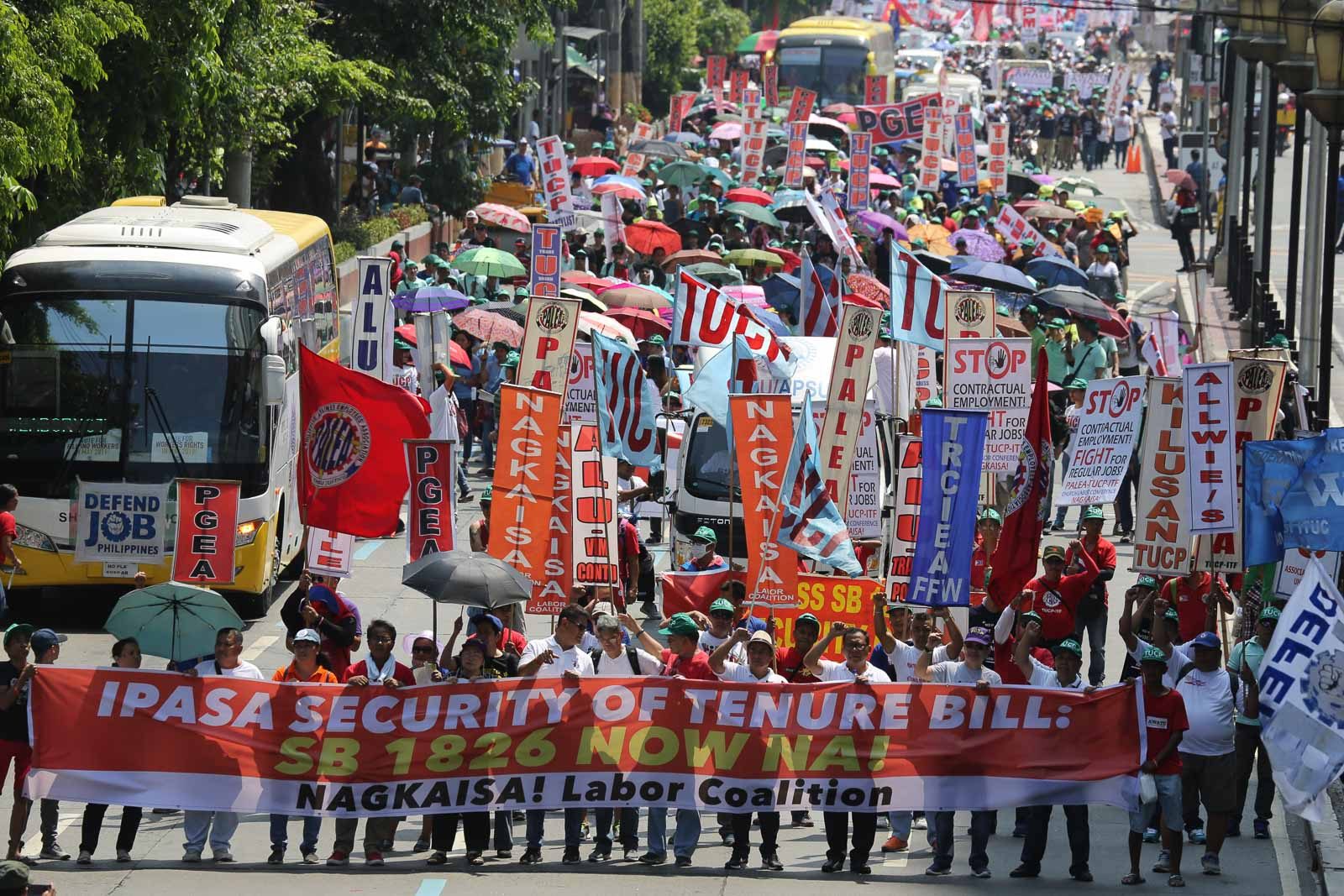SUMMARY
This is AI generated summarization, which may have errors. For context, always refer to the full article.

MANILA, Philippines – After President Rodrigo Duterte vetoed a bill that sought to end contractualization in the country, the Department of Labor and Employment (DOLE) aimed to assure workers that government efforts to combat endo (end of contract) schemes would continue.
In a press conference on Monday, July 29 Labor Secretary Silvestre Bello III said the department was currently working on a new proposal it would submit to the Legislative-Executive Development Advisory Council (LEDAC) by Monday, August 5.
“The mere fact he allowed us to review this bill is a step forward…. This is not the end of their cause…. I understand that there is LEDAC [meeting] on Monday so I hope we have formulation so it can be presented to the President,” Bello said.
Bello’s statements come days after Duterte on Friday, July 26, vetoed the security of tenure (SOT) bill just a day before it was scheduled to lapse into law. Labor groups had slammed Duterte’s decision, saying it only showed how he turned his back on workers to whom he promised to end contractualization.
Up until the last minute, labor groups had urged Duterte to sign the SOT bill into law. Despite earlier rejecting the bill, groups said though the measure was was a much watered down version of what they wanted, it was still “better than nothing.” (READ: After Duterte’s veto, labor groups vow to continue fight vs endo)
NOW: Labor Secretary Silvestre Bello holds a presscon on President Duterte’s recent decision to veto the security of tenure bill @rapplerdotcom pic.twitter.com/XwRjTsFua9
— Sofia Tomacruz (@sofiatomacruz) July 29, 2019
What are the possible new amendments? Among the possible provisions DOLE would address were contentious issues such as the definition of “labor-only contracting” and how to determine jobs considered directly related to employers’ businesses.
As it stands, the SOT bill said “labor-only contracting” exists when:
- The job contractor merely supplies, recruits, and places workers to a contractee.
- The workers supplied to a contractee perform tasks/activities that are listed by the industry to be directly related to the core business of the contractee.
- The contractee has direct control and supervision over the workers supplied by the contractor.
DOLE also said that in deciding who gets to determine what jobs were considered directly related to employers’ businesses, a tripartite group consisting of businesses, workers groups, and government should be involved.
The expected output from the LEDAC meeting would be the Executive’s proposed version of the SOT bill, which lawmakers could refer to when drafting new proposals. (READ: Villanueva refiles anti-endo bill days after veto)
Still committed? Both lawmakers and labor groups, though, questioned whether or not ending contractualization was still a priority of the Duterte administration considering Duterte vetoed the measure after he certified it as urgent. (READ: Senators hit Duterte veto of anti-endo bill: ‘Get your act together’)
Bello argued that by vetoing the SOT bill, the President was still committed to ending all forms of abusive contractualization.
“By vetoing the bill he thought this was the better option to provide our workers not only employment but security of tenure…. The intention of the President was really to secure our workers in their employment contrary to the perception na iniwanan niya yung ating manggagawa (he left behind our workers),” Bello said.
Duterte himself earlier gave assurances of his “firm commitment to protect the workers’ right to security of tenure by eradicating all forms of abusive employment practices.” (READ: TIMELINE: Duterte’s promise to abolish endo)
In his veto message, however, Duterte echoed major business organizations as he said, “businesses should be allowed to determine whether they should outsource certain activities or not.” – Rappler.com
Add a comment
How does this make you feel?







There are no comments yet. Add your comment to start the conversation.